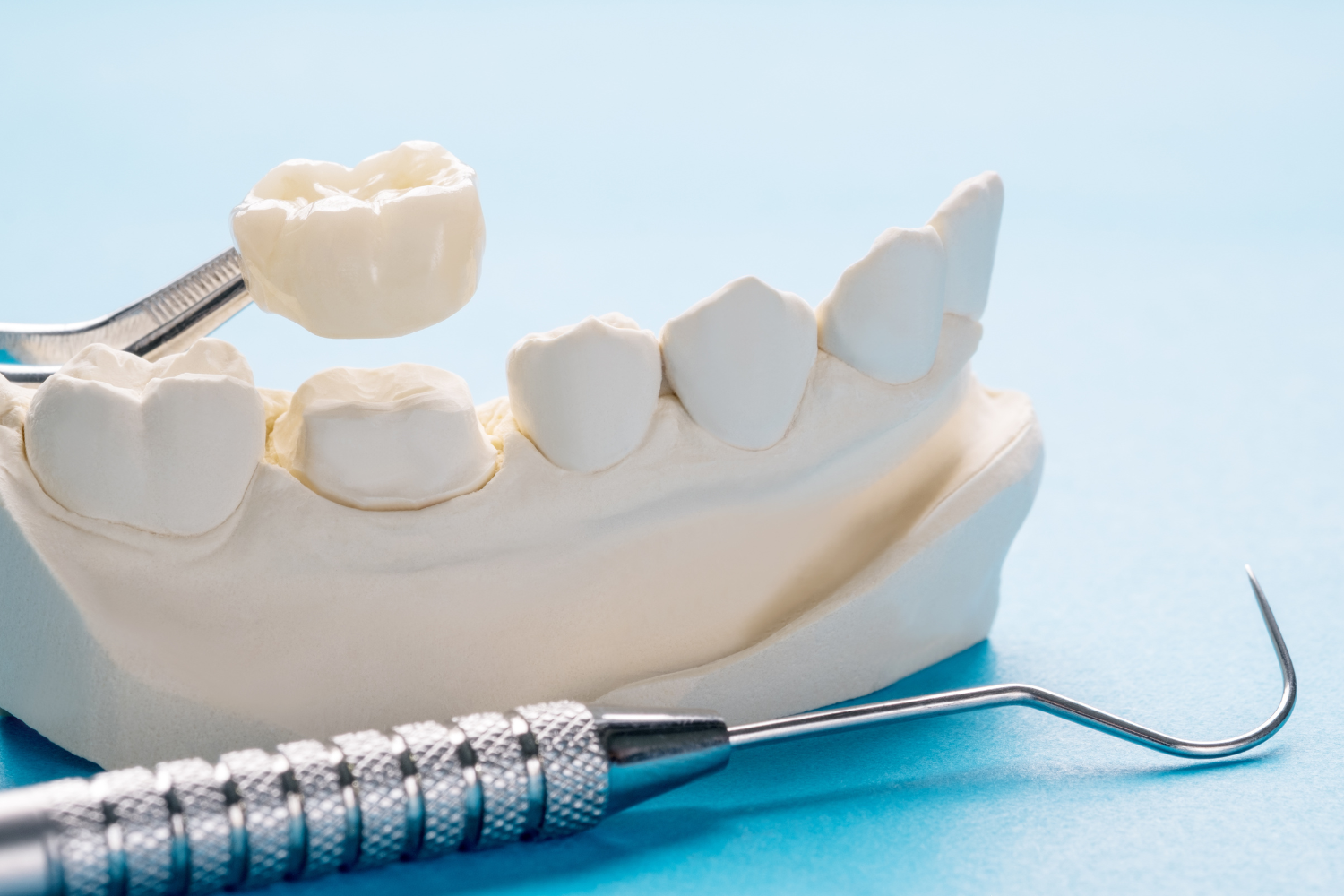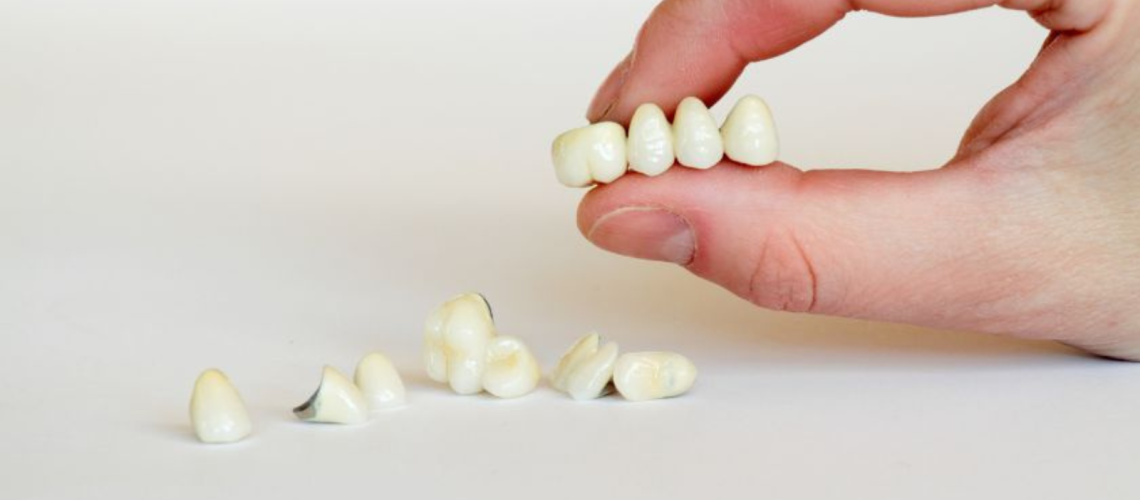Porcelain crowns are an excellent dental solution for restoring damaged or discolored teeth, offering both functionality and aesthetic benefits. Proper care and maintenance are crucial to ensure the longevity and effectiveness of your new porcelain crowns. Whether you’ve just had crowns placed or are considering them, this comprehensive guide will walk you through everything you need to know about caring for your porcelain crowns, from immediate post-placement care to long-term maintenance tips.
Understanding Porcelain Crowns
Porcelain crowns, also known as ceramic crowns, are custom-made caps that cover a damaged or decayed tooth. They are designed to mimic the natural appearance of teeth, blending seamlessly with your smile. Porcelain is chosen for its durability, stain resistance, and ability to reflect light, similar to natural tooth enamel.

Immediate Post-Placement Care
After your dentist has placed your porcelain crowns, follow these essential care tips to promote healing and ensure the crowns settle properly:
- Avoid Chewing Immediately: Refrain from eating or chewing on hard or sticky foods immediately after the procedure. Allow the cement used to bond the crown to your tooth to set fully.
- Be Gentle: While porcelain crowns are strong, avoid chewing hard objects like ice or using your teeth to open packages. These actions can potentially damage the crown or weaken the bond with your tooth.
- Maintain Oral Hygiene: Continue brushing and flossing your teeth as usual. Pay attention to the gum line around the crown to prevent plaque buildup, which can lead to gum disease and compromise the longevity of your crown.
- Attend Follow-up Appointments: Schedule and attend any follow-up appointments recommended by your dentist. These appointments allow your dentist to assess the fit and condition of your crowns and address any concerns early on.
Long-Term Care Tips for Porcelain Crowns
To keep your porcelain crowns in optimal condition for years to come, incorporate these long-term care practices into your oral hygiene routine:
1. Brush and Floss Regularly
- Use a Soft-Bristled Toothbrush: Brush your teeth at least twice a day with a soft-bristled toothbrush and fluoride toothpaste. Gentle brushing helps remove plaque and debris without damaging the porcelain surface of your crowns.
- Floss Daily: Floss between your teeth and around the base of the crowns to clean areas that are difficult to reach with a toothbrush. Proper flossing prevents plaque buildup and reduces the risk of gum disease.
2. Avoid Certain Foods and Habits
- Minimize Staining Substances: While porcelain is resistant to stains, it’s best to limit your consumption of highly pigmented foods and beverages such as coffee, tea, red wine, and berries. If you do consume these items, rinse your mouth with water afterward to minimize staining.
- Avoid Chewing Hard Objects: Refrain from chewing on hard objects or using your teeth as tools, as this can chip or crack the porcelain material of your crowns.
3. Wear a Mouthguard
- Protect Your Crowns: If you grind your teeth at night or participate in contact sports, wear a custom-made mouthguard. A mouthguard protects your crowns from damage caused by teeth grinding or impact during sports activities.
4. Regular Dental Check-ups
- Schedule Routine Dental Visits: Visit your dentist every six months for professional cleanings and examinations. During these visits, your dentist will inspect the condition of your porcelain crowns, identify any signs of wear or damage, and address issues promptly.
5. Address Any Issues Promptly
- Monitor for Changes: Pay attention to any changes in the fit or feel of your crowns, such as increased sensitivity, pain when biting down, or a loose crown. These may indicate underlying issues that require attention from your dentist.
Common Concerns About Porcelain Crowns
1. Sensitivity
- Initial Sensitivity: It’s normal to experience mild sensitivity to hot or cold foods immediately after getting porcelain crowns. This sensitivity typically subsides within a few weeks as your mouth adjusts to the new crowns.
- Persistent Sensitivity: If sensitivity persists or worsens over time, it could indicate issues with the fit of the crowns or underlying tooth structure. Contact your dentist for an evaluation if you experience persistent discomfort.
2. Loose Crowns
- Causes: A loose crown may occur due to recurrent decay, trauma, or an improper fit. If you notice your crown feels loose or comes off, save it and contact your dentist immediately.
- Avoid DIY Fixes: Refrain from using over-the-counter dental adhesives to reattach a loose crown, as these products can damage your crown and compromise your oral health.
Caring for your new porcelain crowns involves adopting good oral hygiene habits, avoiding habits that can damage the crowns, and attending regular dental check-ups. By following these guidelines and promptly addressing any concerns that arise, you can ensure your porcelain crowns provide years of functionality and enhance your smile’s appearance.

